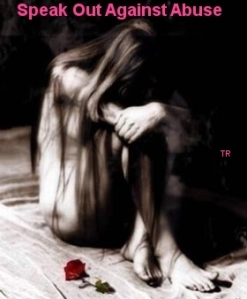
If you live with a resentful, angry, or emotional abusive person, you have most likely have already tried marriage counseling or individual psychotherapy. You may have tried sending your partner to some kind of anger-management group. Let me guess your experience: Your personal psychotherapy did not help your relationship, marriage counseling made it worse, your partner’s psychotherapy made it still worse, and his anger-management or abuser classes lowered the tone but not the chronic blame of his resentment, anger, or abuse.
Fortunately, you can learn something about healing from each one of these failed treatments, which we will examine next, one by one.
Why Marriage Counseling Fails
By the time most of my clients come to see me, they have already been to at least three marriage counselors, usually with disastrous results. A major reason for their disappointment is that marriage counseling presupposes that both parties have the skill to regulate guilt, shame, and feelings of inadequacy without blaming them on one another. If your husband could reflect on the motivations of his behavior – what within him makes him act as he does-he might then disagree with you or feel he can’t communicate with you or feel incompatible with you for any number of reasons, but he wouldn’t yell, ignore, avoid, devalue, or dismiss you in the process. If your husband were able to regulate his own emotions, your marriage counseling might have been successful.
Another strike against marriage counseling is manifest in an old joke among marriage therapists: We all have skid marks at the door where the husband is being dragged in. As you well know, men do not go voluntarily to therapy as a rule. So therapists tend to go out of their way to engage the man because he is 10 times more likely to drop out than his wife. If the therapist is sufficiently skilled, this extra effort to keep the man engaged isn’t a problem, in normal relationships. But in walking-on-eggshells relationships it can be disastrous, because the therapist unwittingly joins with the more resentful, angry, or abusive partner in trying to figure out who is to blame in a given complaint. Of course he or she won’t use the word, “blame.” Most marriage counselors are intelligent and well-meaning and really want to make things better. So they will couch their interventions in terms of what has to be done to resolve the dispute, rather than who is to blame. Here’s an example of how they go wrong.
Therapist: Estelle, it seems that Gary gets angry when he feels judged.
Gary: That’s right. I get judged about everything.
Therapist: (to Estelle) I’m not saying that you are judging him-
Gary: (interrupting) Oh yes she is. It’s her hobby.
Therapist: (to Estelle) I’m saying that he feels judged.
Perhaps if your request could be put in such a way that he wouldn’t feel judged, you would get a better reaction.
Estelle: How do I do that?
Therapist: I noticed that when you ask him for something, you focus on what he’s doing wrong. You also use the word “you” a lot. Suppose you framed it like this. “Gary, I would like it if we could spend five minutes when we get home just talking to each other about our day.” (to Gary) Would you feel judged if she put it like that?
Gary: Not at all. But I doubt that she could get the judgment out of her tone of voice. She doesn’t know how to talk any other way.
Therapist: Sure she does. (to Estelle) You can say it without judgment in your voice, can’t you?
Estelle: Yes, of course I can. I don’t mean to be judgmental all the time.
Therapist: Why don’t we rehearse it a few times?
So now the problem isn’t Gary’s sense of inadequacy or his addiction to blame or his abusiveness, it’s Estelle’s judgmental tone of voice. With this crucial shift in perspective introduced by the therapist, Estelle rehearsed her new approach. Gary responded positively to her efforts, while the therapist was there to contain his emotional reactivity. Of course at home, it was quite another matter, despite their hours of rehearsal in the therapist’s office.
In a less reactive relationship, the therapist’s advice wouldn’t be so bad. It’s questionable whether it would help, but it wouldn’t do any harm. If Gary could regulate his emotions, he might have appreciated Estelle’s efforts to consider him in the way she phrased her requests; perhaps he would have become more empathic. But in the day-to-day reality of this walking-on-eggshells relationship, Gary felt guilty when Estelle made greater efforts to appease him. Predictably, he blamed it all on her — she wasn’t doing it right, her “I-statements” had an underlying accusatory tone, and she was trying to make him look bad.
By the way, research shows that therapists behave in their own relationships pretty much the same way that you do. In disagreements with their spouses, they fail just as much as you in trying to use the “communication-validation” techniques they make you do in their offices. They find it as tough as you and your husband do to put on the brakes when their own emotions and instinct to blame are going full throttle. After all, how is Mr. Hyde supposed to remember what Dr. Jeckyl learned in marriage counseling? more…












